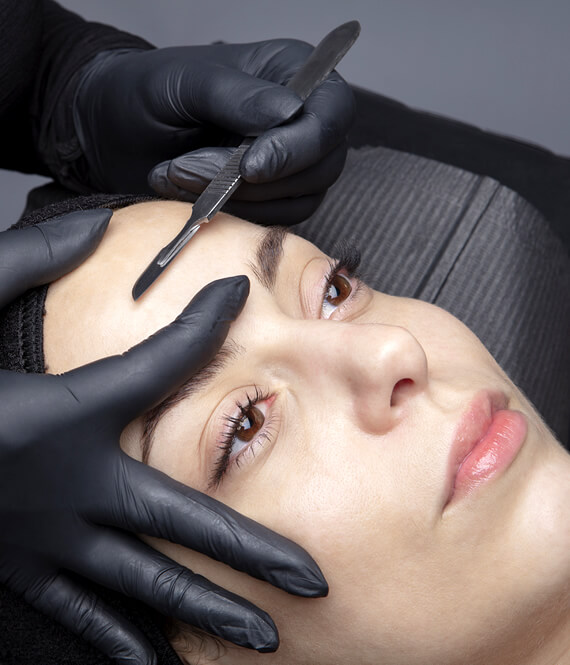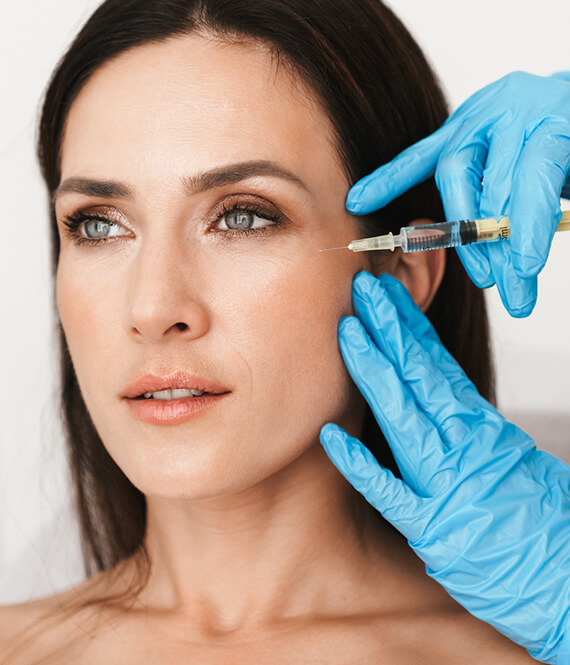
Preparing for Knee Replacement: Steps for a Successful Surgery & Recovery
We recommend helpful products in our articles. Read our full disclosure here. The content on this website is not intended to be a substitute for professional advice, diagnosis, or treatment.
Knee replacement surgery is a significant medical procedure that can significantly improve the quality of life for individuals suffering from severe knee pain, arthritis, or injury.
Whether you’re undergoing a traditional knee replacement or considering the advanced keyhole surgery for knee replacement, thorough preparation is crucial for a successful outcome.
This quick guide outlines essential steps to prepare for knee replacement surgery, ensuring you are well-informed and ready for the journey ahead.
Continue reading to learn more.
Understand the procedure
The first step in preparing for knee replacement surgery is understanding the procedure.
Your orthopedic surgeon will explain the specifics of the surgery, including the type of knee replacement you will receive.
Traditional knee replacement involves making a large incision to access the knee joint, while keyhole surgery for knee replacement, also known as minimally invasive surgery, involves smaller incisions and less disruption to the surrounding tissues.
Understanding the risks, benefits, and expected recovery timeline is crucial for setting realistic expectations.
When discussing knee replacement options, your surgeon might mention keyhole surgery for knee replacement.
This technique uses smaller incisions than traditional knee surgery, which can lead to a quicker recovery, less pain, and reduced scarring.
The procedure uses specialized instruments and a camera to guide the surgeon, allowing for precise placement of the knee implant.
While keyhole surgery is not suitable for everyone, it represents a significant advancement in knee replacement techniques, offering an alternative for qualified candidates.
Pre-surgical assessments
Pre-surgical assessments are essential to ensure you are healthy enough for surgery.
These assessments may include blood tests, X-rays, MRIs, and medical history evaluations.
Your surgeon will use this information to plan the best surgical approach and anticipate potential complications.
Physical preparation
Preparing for knee replacement surgery involves physical and mental preparations to ensure a successful outcome and smooth recovery.
Here are some critical steps to physically prepare for your knee replacement surgery.
1. Strengthen your muscles
Strengthening the muscles around your knee can help you recover faster after surgery.
Focus on exercises that strengthen your quadriceps and hamstrings.
Your healthcare provider or a physiotherapist can recommend specific exercises that are safe to perform before your surgery.

2. Maintain a healthy weight
If you’re overweight, losing weight can help reduce the stress on your new knee joint and improve your surgical outcomes.
Even a tiny amount of weight loss can make a significant difference in your recovery and the longevity of your knee implant.
3. Improve your flexibility
Improving the flexibility of your knee and the surrounding muscles can aid your recovery.
As your physiotherapist recommends, gentle stretching exercises can help maintain and improve flexibility before surgery.
4. Practice prehabilitation exercises
Prehabilitation refers to physical therapy performed before surgery to improve surgical outcomes.
Engaging in a prehabilitation program can help you enter surgery in better physical condition, potentially leading to a faster recovery.
5. Optimize your nutrition
Good nutrition is crucial for healing.
Ensure your diet is rich in vitamins, minerals, and proteins to aid in your recovery.
Consider consulting a nutritionist to optimize your diet before surgery.
6. Quit smoking and limit alcohol consumption
Smoking can impair your ability to heal and increase the risk of complications during and after surgery.
Similarly, excessive alcohol consumption can interfere with your surgery and recovery.
It’s essential to quit smoking and limit alcohol well in advance of your surgery.
Aside from the above, your surgical team will provide specific instructions to prepare for surgery, including fasting, adjusting your medications, especially if you’re taking any for severe arthritis, and what to bring to the hospital.
Following these instructions carefully is crucial for a successful surgery and recovery.
By preparing physically for knee replacement surgery, you can improve your chances of smooth surgery and speedy recovery.
Always communicate openly with your healthcare team and follow their guidance closely.
Plan for recovery
Recovery from knee replacement surgery requires planning.
Arrange for assistance at home, as you will have limited mobility initially.
Ensure you have a comfortable recovery area with essential items within easy reach.
Consider modifying your home, such as installing grab bars in the bathroom, to make post-surgical life easier and safer.
1. Attend preoperative education
Many hospitals offer preoperative education classes for patients undergoing knee replacement surgery.
These classes provide valuable information on what to expect before, during, and after surgery.
They also offer an opportunity to ask questions and address any concerns.
2. Prepare mentally
Mental preparation is just as necessary as physical preparation.
Surgery can be stressful, so it’s important to develop coping strategies that work for you.
Doing so might include meditation, reading about others’ success stories, or speaking with a counselor.
Positive thinking and visualization can also play a significant role in your recovery.
3. Follow pre-surgical instructions
Your surgical team will provide specific instructions to follow in the days leading up to your surgery.
These instructions may include fasting, adjusting medications, and washing with antibacterial soap.
Following these instructions is vital for reducing the risk of complications during and after surgery.
Conclusion
Understanding the procedure, completing pre-surgical assessments, preparing physically and mentally, and following your healthcare provider’s instructions can set the stage for a successful surgery and recovery.
Whether you’re undergoing traditional knee replacement or innovative keyhole surgery for knee replacement, taking these steps will help ensure the best possible outcome for your knee health.
"We love to research problems, examine studies, analyze solutions, and share with you ideas that make life healthier. You can learn about us and our editorial standards here. Have suggestions or feedback to share? Send us a message!."













Leave a Comment